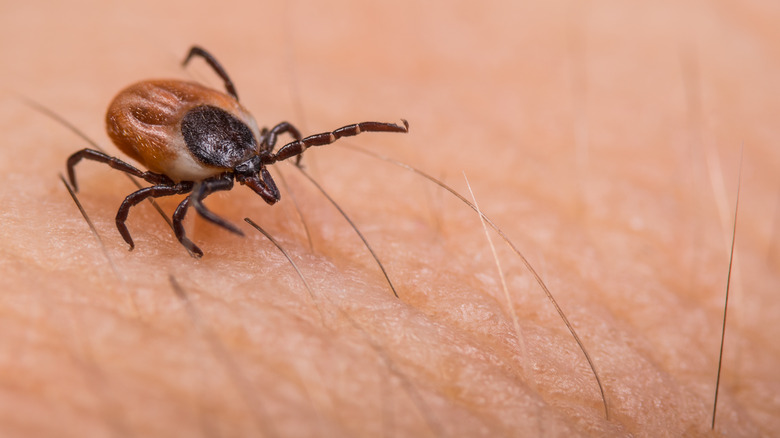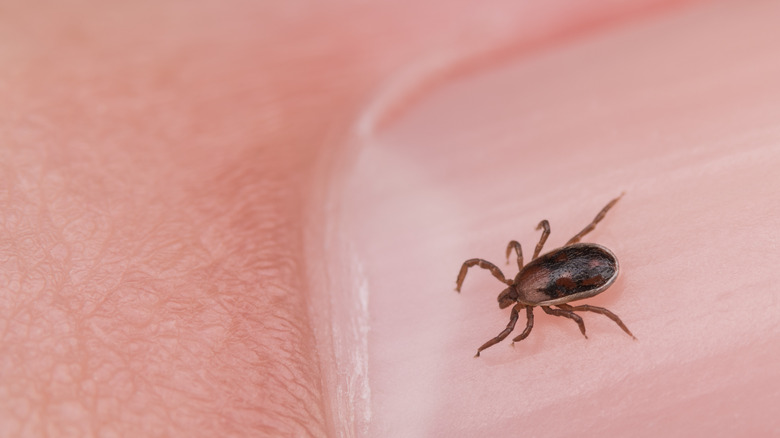The First Thing You Should Do After Getting A Tick Bite
Ticks are common in many areas of the United States and different species can transmit different diseases to humans and animals (via Centers for Disease Control and Prevention). The majority of tick bites do not cause pain or illness, but sometimes a tick bite can lead to an illness like Lyme disease (via Mayo Clinic). It takes about a day and a half for Lyme disease to be transmitted by a tick bite, so you'll want to move quickly once you notice one.
If you find a tick on your skin, the first thing you'll want to do is remove it. According to the CDC, this can be done with a set of fine-tipped tweezers. Using this tool to grasp the tick, you'll want to get as close to your skin as possible. With a slow and steady upward motion, pull the tick out. Be careful not to twist, squeeze, or jerk the tick and avoid using your bare hands or fingernails to remove the tick. Afterwards, use soap and water or rubbing alcohol to disinfect the area. Do not use nail polish, petroleum jelly, or heat to remove a tick. These are folklore remedies and will only delay the amount of time it takes to get the tick out of your skin. To dispose of a live tick safely, place it in a sealed bag or container, wrap it in tape, or flush it down the toilet.
Signs of a tick-borne disease
In many cases, tick bites do not cause symptoms. But some ticks carry diseases and can transmit them to their hosts (via Healthline). These include Lyme disease, Rocky Mountain spotted fever, Powassan disease, and Colorado tick fever (via CDC). Signs of a tick-borne disease include a rash near the site of the bite or all over the body, headache, nausea, weakness, neck stiffness, fever, chills, muscle or joint pain, and swollen lymph nodes. Most of the time, symptoms will appear several days to a few weeks after the bite occurs.
If you've recently been bitten by a tick, see your doctor right away, even if you do not have any symptoms. Tick-borne diseases can come with a number of complications and your doctor can determine if treatment needs to be administered. You will also discuss signs to look out for that would signal a complication, and when to come back for a follow up.

